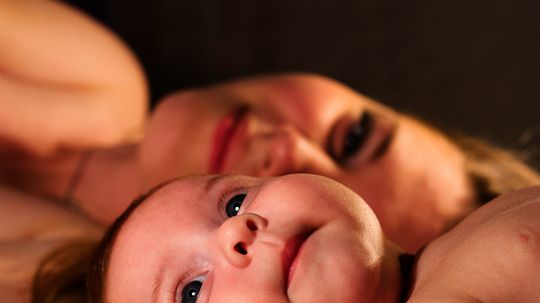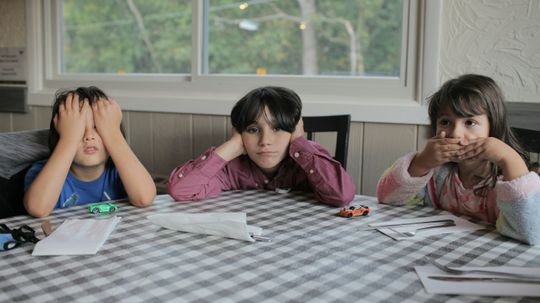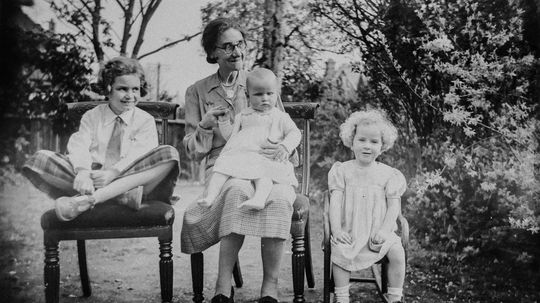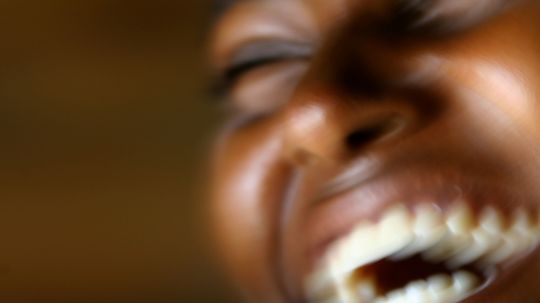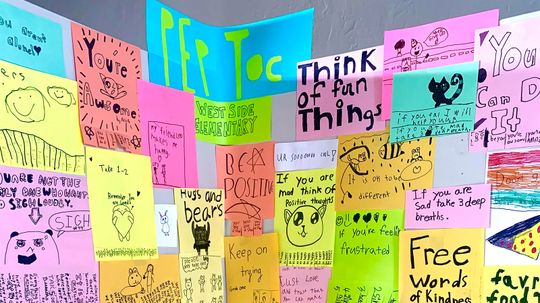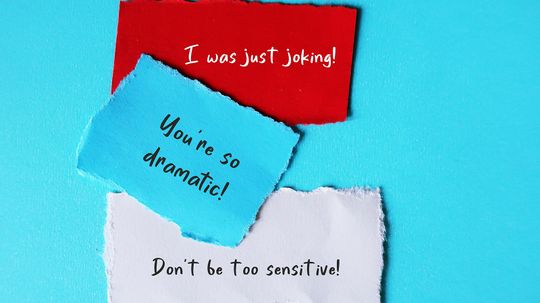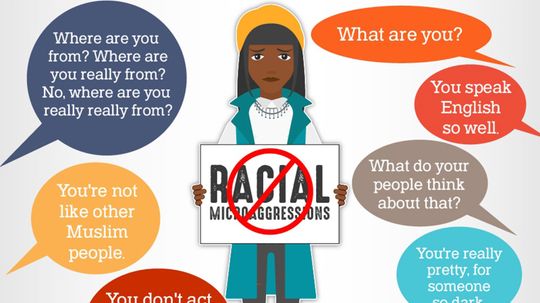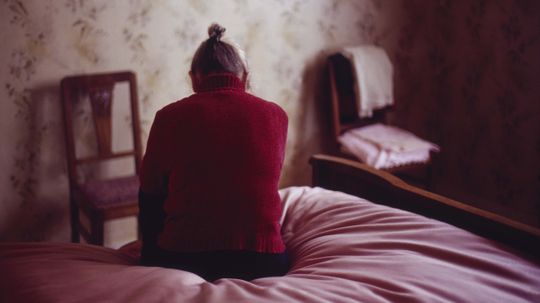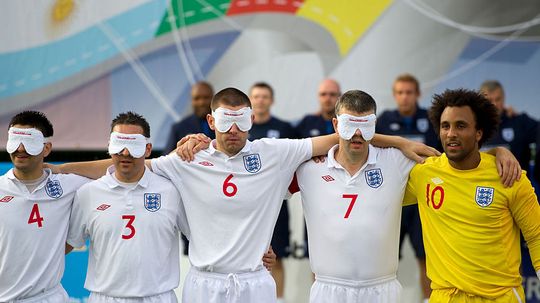Human Nature
Human Nature encompasses peoples' actions, perceptions, and thought processes. Topics include food cravings, mind-reading, and contagious yawning.
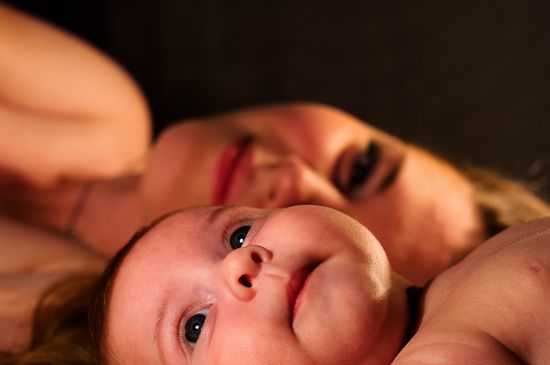
Youngest Child Syndrome: The Perks and Challenges of Being the Baby of the Family

Only Child Syndrome: What It Is, Myths, and Facts

9 Hangover Cures From Around the World
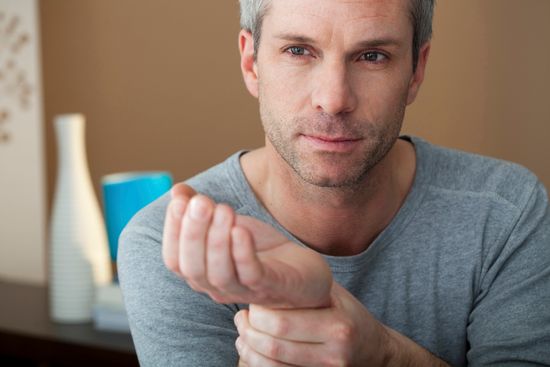
Can you really feel the weather in your bones?

10 Myths About Body Fat
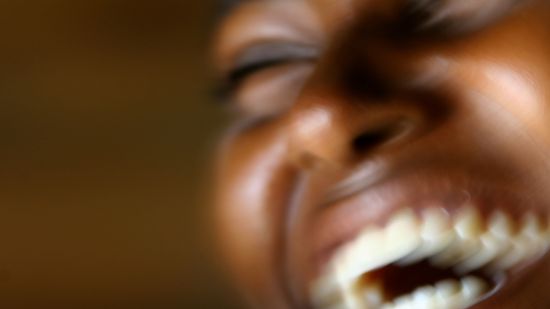
Not So Funny: The Mysterious 1962 Tanganyika Laughter Epidemic

Shinrin-yoku: The Soothing Practice of Forest Bathing

6 Ways Reading a Book Beats Reading Digitally, Hands Down

What causes 'old person' smell?
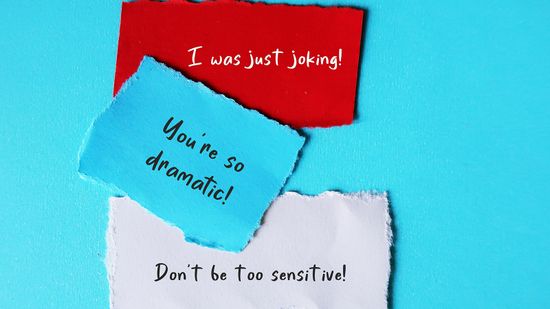
Why Is the Term 'Gaslighting' So Popular Now — and So Misused?

Feel Like a Fraud, Despite Your Success? You Might Have Impostor Syndrome
Learn More
Discover the distinct traits and experiences of the youngest child in the family. This article explores how the 'baby' of the family navigates their role, from extra attention to the challenges of being the youngest sibling.
By HowStuffWorks
Explore Oldest Child Syndrome and the unique pressures firstborns face, from heightened expectations to leadership roles, and how these experiences shape their personality and behavior in adulthood.
By HowStuffWorks
Is Only Child Syndrome real or just a myth? Uncover the surprising truths about growing up without siblings—explore the unique traits, challenges, and advantages that set only children apart. What does science really say?
By HowStuffWorks
Advertisement
Is being the middle child a hidden struggle? Uncover the secrets of 'middle child syndrome' and its surprising impact on your life.
By HowStuffWorks
Learn how birth order impacts personality and behavior with insights from the Birth Order Theory. This article explores how being a firstborn, middle child, or youngest influences traits like leadership, creativity, and social dynamics.
By HowStuffWorks
"Let's go to grandpa's room and see if it still smells funny," said Tommy.
In 1962, at a girls' school in Tanganyika (now Tanzania), Africa, some schoolgirl giggles turned into a countrywide health crisis. And, to this day, the laughter remains a mystery.
Advertisement
These days, people are looking for ways to find and share more joy instead of feeling happy about someone else's misfortune. That feeling of shared joy is called freudenfreude.
Feeling down and need someone to pick you up? Give the kids of Peptoc a call and we guarantee a smile!
It's a term that's often used in an argument. But gaslighting has a very specific meaning that is often lost. What is it and how can you know if you're really being gaslighted?
By Alia Hoyt
Shinrin-yoku, or forest bathing, is all about slowing down and "bathing" yourself in the beauty of nature, which leads to psycho-emotional healing and stress reduction.
By Carrie Tatro
Advertisement
Getting lost in a book is one of life's greatest pleasures, but is a digital book just as pleasurable as a paper book? And which format is the best for learning?
Everyone experiences boredom at some point and maybe even ennui, a chronic type of boredom. But surprisingly, ennui does have some benefits.
By Alia Hoyt
Perhaps everyone feels unworthy of their achievements at some point. But if you constantly have that feeling, you may have impostor syndrome. So, who's more likely to have it and how do you cope with it?
By Alia Hoyt
A study found that stereotypes of Americans who identified with more than one race were different from stereotypes applied to people of one race. What were they and what do biracial people think about these findings?
Advertisement
The term 'microaggression' has gone mainstream in the last few years. But what counts as a microaggression, and why are some experts critical of the word?
The suicides of two students from Marjory Stoneman Douglas High School, as well as the suicide of a father of a child killed at Newtown Elementary highlight how the shock from a deep trauma remains long after for survivors.
By John Donovan
This weekend's Powerball lottery is up to $800 million. Is that enough to get you to play?
By Dave Roos
More than 250 people in six years have died while taking selfies. Who is taking such risks and why?
Advertisement
And that difference has a lot to do with dopamine - and how you respond to it.
Experts who've studied this say you have to look at several factors regarding parenting, toy guns and aggression.
The announcements of Kylie Jenner's 'surprise' baby and Beyonce's pregnancy with twins were two of the most liked Instagrams of all time. Why do celebrity babies excite the public so much?
By Alia Hoyt
Loneliness is such a prevalent problem that the British have appointed a minister for loneliness.
Advertisement
Secrets can take a measurable mental and physical toll on those who keep - and share - them.
Are facial expressions learned or innate? A study that looked at the facial expressions of people blind from birth found mixed results.
By Alia Hoyt
